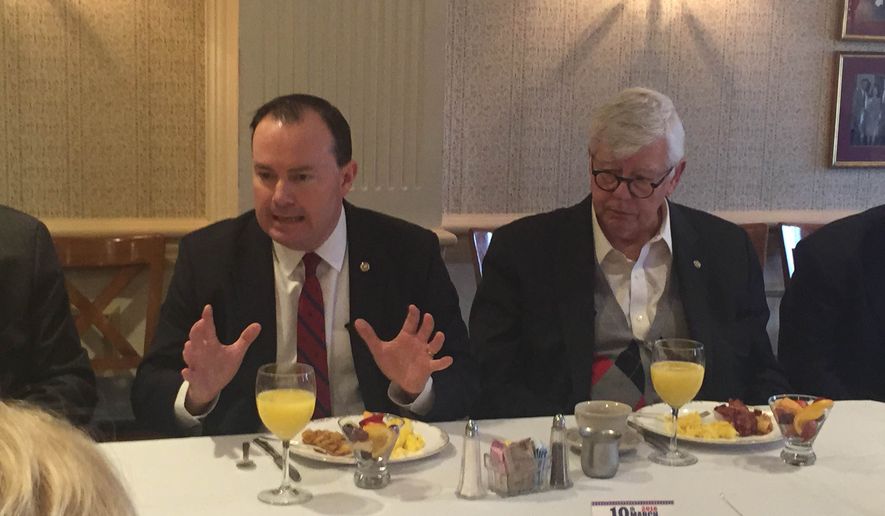The empty chair at the U.S. Supreme Court will not get a new occupant until 2017, Sen. Mike Lee told a recent breakfast gathering hosted by The Washington Times’ Insights Club.
There is “abundant” historical precedent for leaving the court without a full bench of justices, the Utah Republican explained, noting that in recent years alone, dozens of cases were decided by eight members of the court because of a recusal by a sitting justice.
Moreover, for logistical reasons, even if a Supreme Court nominee were to be confirmed this year, that person wouldn’t be seated until October — a few weeks before the new president is elected, Mr. Lee told the Insights Club members gathered at The Monocle restaurant on Capitol Hill on Feb. 25.
There is “too much at stake” for such an important, lifetime appointment, Mr. Lee said.
“The American people ought to have a voice in this,” which is why it should be left for the next president to handle, he said.
This is why “we’re not budging an inch” on the decision to not confirm a nominee this year, he said.
Mr. Lee also explained his ambitious Article I Project, which is intended to restore Congress to its proper constitutional role, including reclaiming congressional authority over the federal agencies whose unelected employees write reams of regulations.
It also means reforming “the process by which Congress spends money,” he said.
Too often, members of Congress are faced with legislative “cliffs” — scenarios in which lawmakers are given a massive bill, an impossibly short deadline to read it, and the choice to pass it — without amendments — or be accused of “shutting down the government.”
Such scenarios are damaging to the nation, disenfranchise the people and their elected representatives, and must come to an end, Mr. Lee said.
An audio recording of the event — which included comments about land use, energy and the late Supreme Court Justice Antonin Scalia — is available to Insights Club members.
• Cheryl Wetzstein is Special Sections Manager at TWT Media Group.




Please read our comment policy before commenting.